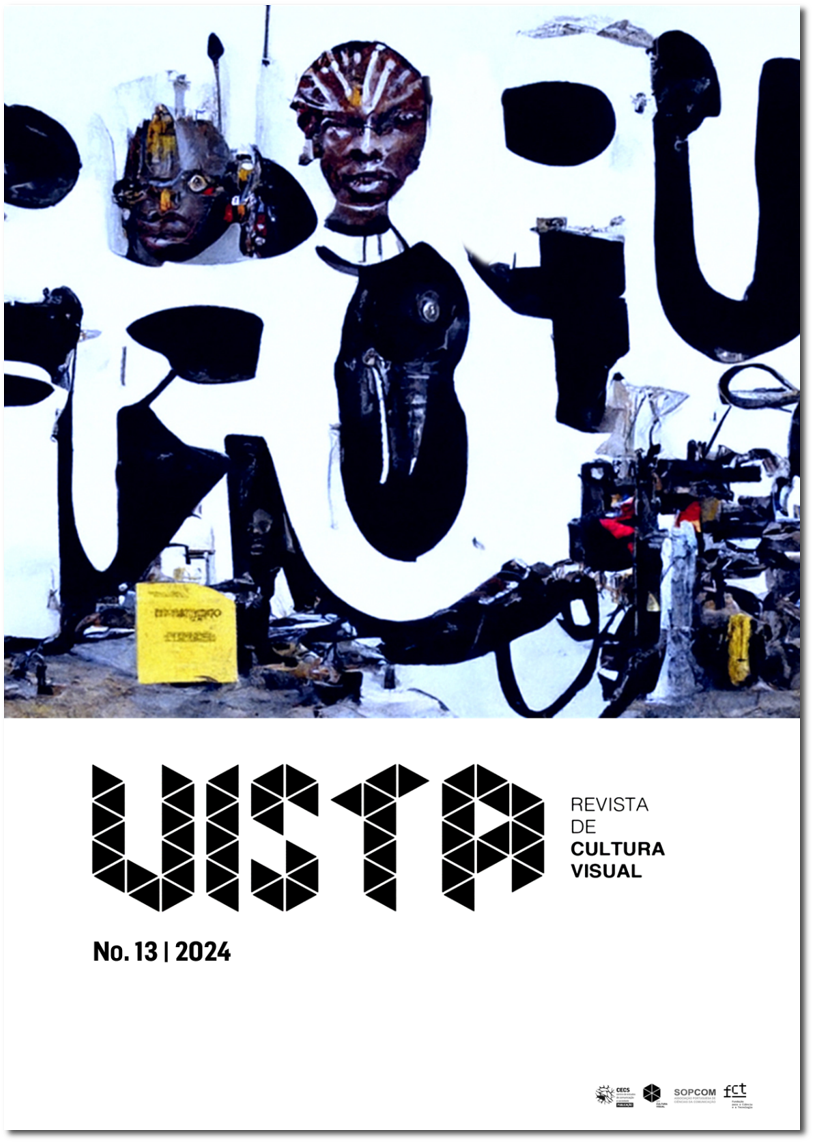Repairing Communication. Depatriarchalising, Decolonising and Ecologising Media Culture
DOI:
https://doi.org/10.21814/vista.5597Abstract
Review of Comunicación Radical. Despatriarcalizar, Decolonizar y Ecologizar la Cultura Mediática (2022).
Downloads
References
Andrés, S. de. (2024, 24–26 de janeiro). Comunicación lenta. Comunicación radical [Conferência de abertura]. XIII Congresso da Sopcom, Braga, Portugal.
Barreiros, I. B. (2022). Reparar, reparando: A memória colonial na Casa da História Europeia. Práticas da História, 15, 101–149. https://doi.org/10.48487/pdh.2022.n15.30058
Cabecinhas, R. (2022). Outras histórias. Ativismos mnemónicos, género e interseccionalidades. CO(M)XÉNERO. Cadernos de Comunicación e Xénero, 2, 15–35.
Giuliani, G., & Pereira, A. C. (2023). (De)othering the grammar of the nation: Black and anticolonial counter publics in Portugal and Italy. StudiCulturali, 20(3), 273–294.
Macedo, I., Lins, L., Vieira da Silva, T., & Cabecinhas, R. (2023). Exploring images of otherness through cinema. Analysis of counter-visualities in Portuguese films. Papers on Social Representations, 32(2), 1.1–1.27.
Macharia, S. (Ed.). (2020). Who makes the news. 6th Global Monitoring project. GMMP.
Mbembe, A. (2017). Critique of Black reason. Duke University Press. DOI: https://doi.org/10.2307/j.ctv125jgv8
Mejías, U. A., & Couldry, N. (2019). Colonialismo de datos: Repensando la relación de los datos masivos con el sujeto contemporâneo. Virtualis, 10(18), 78–97.
Rajkó, A., Herendy, C., Goyanes, M., & Demeter, M. (2023). The Matilda effect in communication research: The Effects of gender and geography on usage and citations across 11 countries. Communication Research. Publicação eletrónica antecipada. https://doi.org/10.1177/00936502221124389 DOI: https://doi.org/10.1177/00936502221124389
Downloads
Published
How to Cite
Issue
Section
License
Copyright (c) 2024 Rosa Cabecinhas

This work is licensed under a Creative Commons Attribution 4.0 International License.
Authors own the copyright, providing the journal with the right of first publication. The work is licensed under a Creative Commons Attribution 4.0 International License.













